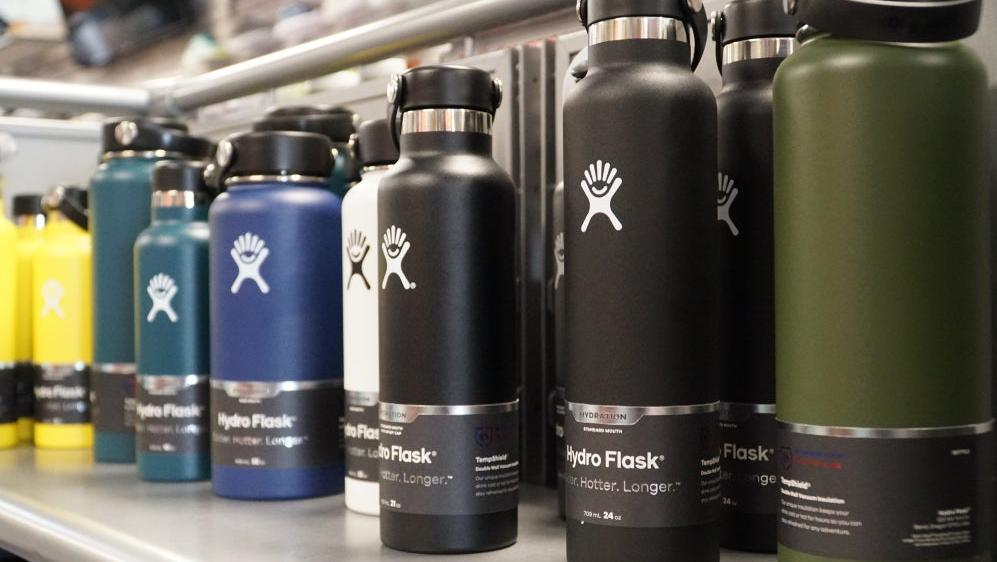Feud: Stanley Vs. Hydro Flask
Let the great Trendy Water Bottle Battle of 2024 commence.
All the kids want Stanley cups. All the adults want Stanley cups. No, not the hockey kind. The giant metal tumbler with a straw. It's a status symbol and great fodder for jokes about water bottle elitism. But few fans of the cups might realize that they also contain lead.
A recent internet outcry occurred on social media when some consumers claimed their Stanley tumblers were testing positive for lead. In response, the company pointed media outlets to information on the website explaining the lead content. According to Stanley, yes, lead is used in the production of the cups "to seal the vacuum insulation at the base of our products." The portion containing lead is then covered in material that keeps the lead sealed up inside the cup, unable to reach your beverage or your lips.
"In the rare occurrence the base cap of a product comes off due to ordinary use and exposes this seal, it is eligible for our Lifetime Warranty," the Stanley website reads.
Still, some people are criticizing Stanley for the lead content—including rival water bottle company Hydro Flask.
Hydro Flask fights dirty
Amidst the conversations about lead in the Stanley tumblers, Hydro Flask—which, along with other companies and surely in reaction to the popularity of the Stanley design, also makes a 40-oz. handled tumbler which the brand is heavily promoting—posted on Instagram, "We want to assure you that Hydro Flask does not use lead in our vacuum sealing process." The company then added just a touch of snark into the caption, writing, "In fact, more than a decade ago we pioneered a new process that sealed our bottles without the use of lead."
Not only does Hydro Flask hint at a "better" production process, but it's also reminding you that Hydro Flask got here first. The company also notes that its method is better for the environment.
Not to be ignored, Owala ("I don't know her") also posted about its lack of lead content, and it even one-upped Hydro Flask in the process. Unlike Hydro Flask, Owala explains in its Instagram post that its products have never even used lead to begin with, while Hydro Flask only started making its bottles lead-free a decade ago. So if your Hydro Flask is more than 10 years old, you might not be in any position to disdain the Stanley girlies.
All in all, these companies will seize upon anything to self-promote. Trendy tumbler products have been talked about across all social media platforms, and any publicity is good publicity (yes, even discussions of lead content).
Social media reactions to Stanley
The news cycle has apparently moved on from the fear of lead to focus instead on the fact that America's most beloved water bottle companies are fighting. Social media users implored other companies with similar products, like Yeti, to enter the ring.
My personal favorite comment on the Hydro Flask Instagram post is from Mandi_Atrandom, who says, "I know this is for water but the TEA IS HOT," to which Hydro Flask replied, "Yes! We happy to keep your tea hot!" (sic). The debate rages on among cup loyalists, people who have had the same Hydro Flask for a decade versus the staunch defenders of their precious status cup. Those of us on the sidelines without fancy water bottles are laughing at the pandemonium... but to be fair, I haven't lead-tested the bottles in my house.
